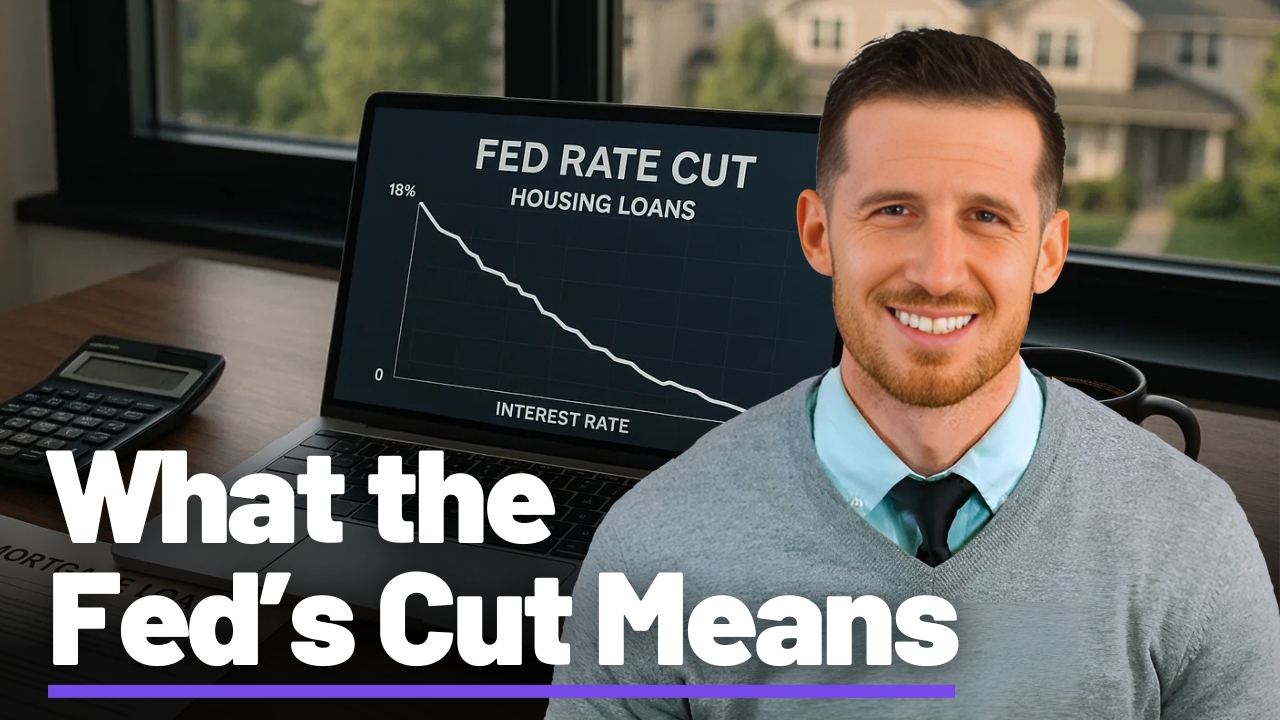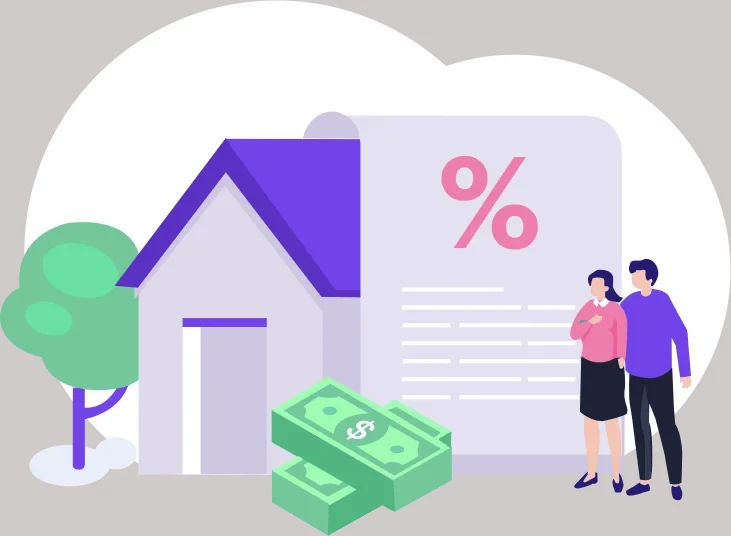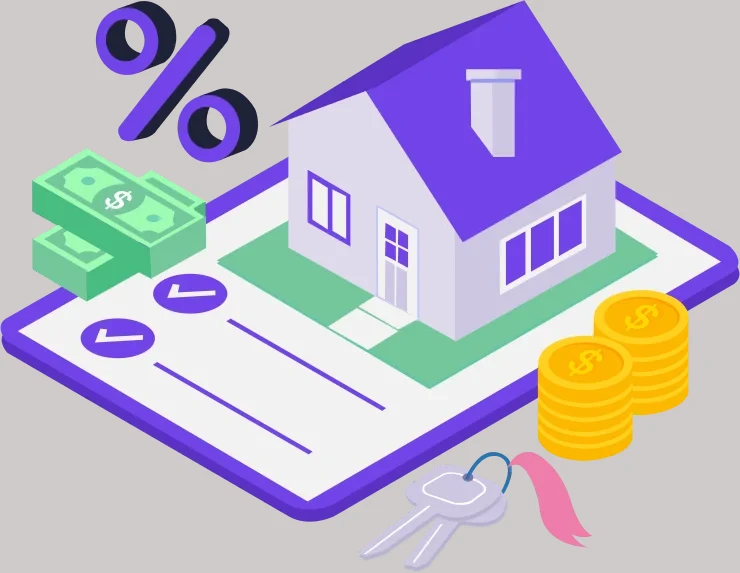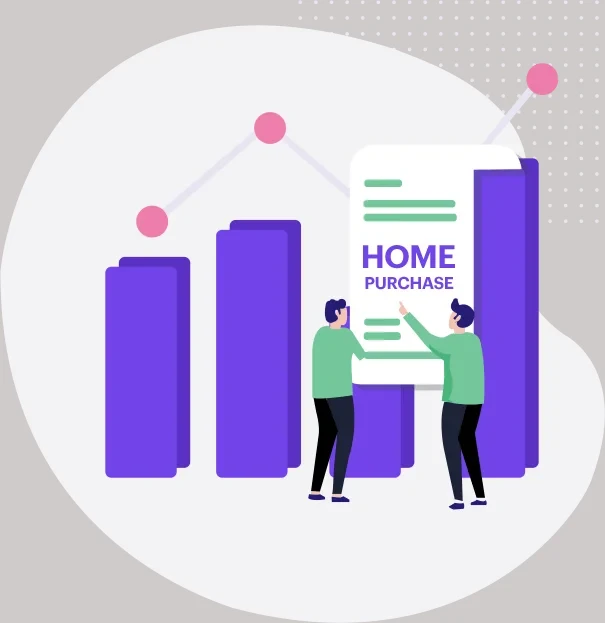Start Your Homebuying Journey Right. Book a free 1-on-1 session with Kyle to go over your homebuying options Book a Call
Is it better to get a mortgage from a bank or through a broker? When it comes to getting a mortgage, most people picture themselves walking into their bank, filling out some forms, and hoping for the best rate. But there’s another route that can sometimes make all the difference: working with a mortgage broker.
Knowing how these two options differ could save you time, headaches, and potentially thousands of dollars over the life of your loan.
What’s the difference between banks and brokers? Let’s break this down simply.
A bank is a direct lender. They offer mortgages using their own products, guidelines, and interest rates. Everything stays in-house.
A broker is more of a middleman. They aren’t lending you the money themselves; instead, they connect you with a variety of lenders, shopping around to find the right loan program, rate, and fit for your unique situation.
Why consider getting a loan from the bank? There are a few reasons why some buyers feel most comfortable sticking with their bank for a mortgage.
● One-stop-shop. If you already have checking and savings accounts there, it can feel easier to keep everything under one roof.
● Familiarity. There’s some comfort in dealing with people and systems you already know.
● Special programs. Some banks offer relationship discounts or programs for long-time customers.
Working with a bank isn’t always perfect; there are some drawbacks to keep in mind, such as the following:
● Limited options. You only see their products. If your finances or credit aren’t a perfect match for what they offer, there may not be much wiggle room.
● Potentially higher rates. Banks often offer “retail” rates, which might not always be the most competitive out there.
● Slow process. Especially with big banks, things can move at their own pace. It’s easy to feel like just another application in a giant stack.
Why consider a mortgage broker? There are some clear advantages to having a broker on your side, especially if you want more options or flexibility.
● More choices. Brokers have access to many different lenders, so you get more choices in terms of rates, loan types, and approval criteria.
● Creative solutions. They’re especially helpful if you’re self-employed, have a lower credit score, or have any financial quirks that don’t fit a bank’s typical mold.
● Wholesale rates. Sometimes, brokers can offer rates that beat what you’ll find walking into a bank branch.
There are a few things you’ll want to watch out for if you’re thinking about going this route, including the following:
● Quality varies per broker. Some brokers are true pros with strong lender connections, while others are less experienced or don’t have as many relationships.
● Third-party coordination. Since brokers are the go-between, they rely on outside lenders and underwriters to get your loan done. A good broker manages this so you don’t feel the hassle, but some buyers prefer dealing directly with the lender.
If you want a straightforward experience and your situation is simple, a bank might work just fine. But if you want more options, better odds at finding the lowest rate, or if you have any unique circumstances, a mortgage broker can open more doors. The right broker will advocate for you, shop around, and help you find a loan that truly fits—not just what’s available at a single bank.
At the end of the day, the best path is the one that leaves you confident in your choice and comfortable with your monthly payment for years to come.
If you want to see what you qualify for, let’s build your custom game plan. Book a free 1:1 call with me using this link: Schedule a 1:1 call with Kyle. You can also reach me at (801) 687-2018 or kkoller@umortgage.com. I’ll help you create a clear path to getting approved for your home loan.
Want to work with us? Here are some ways to get involved.
-
Apply Now Get a free rate quote to refinance or buy a home. How Low Will Your Payment Be?
-
Subscribe Now Sign up for my free home finance newsletter with rate trends, insights, and new products. Know the Mortgage Market







